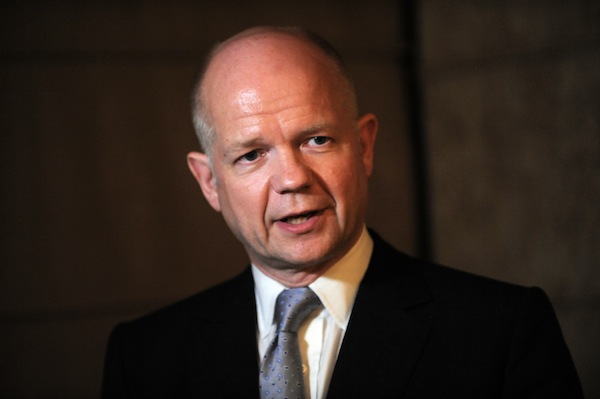Are sanctions among the most pointless tools in contemporary diplomacy? That certainly seems to be the case in Syria where sanctions have been in place against the Assad regime ever since he launched a brutal crackdown against his own people 16 months ago.
Last week, Wikileaks began releasing a massive tranche of emails from Assad’s inner circle which will make uncomfortable reading for many companies in the West. They reveal that in May 2011 a subsidiary of Finmeccanica, the Italian defence manufacturer, sold over £30 million worth of equipment to the Syrian government just when an EU trade embargo was being placed on the regime. As recently as February of this year engineers from the company were also in Damascus teaching the government how to install and use their equipment in helicopter gunships.
Wikileaks only confirms what we already knew. When the Guardian published emails from Assad’s inner circle in March, it revealed the futility of sanctions and blacklisting there. EU sanctions imposed on the regime inconvenienced Asma al-Assad only to the extent that she now has to route her shopping through a willing haulage firm in Dubai. Displaying the studied detachment characteristic of all dictators, Asma breezily shopped for Louboutin shoes, Ming vases from Harrods, and bespoke jewellery from Left Bank Parisian boutiques while Syrian soldiers indiscriminately attacked civilians.
The involvement of companies based in Dubai should come as no surprise. The tiny Arab emirate has long been a clearing house of clandestine and illicit trading, laundering almost anything for anyone. A carousel of Russian gangs, Taliban fighters, and countless Arabian Amirs, are known to have moved money and munitions through Dubai over the last decade.
All this undermines confidence in what William Hague described as ‘unprecedented’ sanctions which came into force against the Iranians last week. ‘These are the toughest measures the EU has adopted against Iran to date’ Hague said. That might be so, but there is little prospect of them achieving their desired aim of halting the Iranian nuclear programme.
Indeed, the Iranians have already found ways to evade a ban on selling their oil to EU member states. A private consortium will now act as intermediary and ensure supplies continue to flow. Sanctions also fail to account for countries who are simply unconcerned by maintaining the international order. The prospect of empowering a theocracy with nuclear weapons poses little immediate concern to China, making it one of the largest consumers of Iranian oil.
For all the gusto with which sanctions are announced few tangible results emerge. This diplomatic Potemkin village might suggest progress at first glance, but is almost always hollow on inspection. So why do politicians use them? For precisely that reason. Syria and Iran are problems that demand urgent attention although there are few certainties about the utility of intervening in either case.
Much of the impetus for the current premium being placed on sanctions originates from Washington. There is huge pressure not to rock the boat before presidential elections later this year. The Obama administration is known to have warned the Turks against intervening in northern Syria and creating an humanitarian corridor in Idlib. Once November passes, expect a change in posturing towards both countries.
Shiraz Maher
‘Unprecedented’ sanctions could still be powerless






Comments